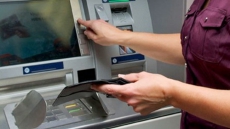MONTREAL - In David Saint-Jacques' line of work, physical distancing comes with the job.
The Canadian astronaut spent 204 days aboard the International Space Station, returning last June after nearly seven months working alongside a small crew aboard the International Space Station, far from his family.
So Saint-Jacques and his fellow space travellers have experience dealing with the kind of isolation that many Canadians find themselves living with today because of the COVID-19 pandemic.
"This is actually a big deal for astronauts, and it's something that the system or the trainers cannot really help you with much," Saint-Jacques told The Canadian Press on Wednesday from Houston.
"It's something we work on ourselves for years."
As Canadians come to grips with the new reality, astronauts past and present are offering up a few tips.
Over the weekend, Chris Hadfield used his YouTube page to offer a few tips on self-isolating dubbed "An Astronaut's Guide to Self-Isolation."
He noted that because of the internet, there's never been a better time to practise distancing. It's also important to have objectives: tackle a new project, learn guitar or another language, read a book, write, create.
"Take care of yourself, take care of your family and friends, take care of your spaceship," said Hadfield, who flew on two space shuttle missions and served as commander on the International Space Station.
Saint-Jacques, one of four active members of the Canadian astronaut corps, and retired astronaut Dr. Bob Thirsk also have a few tips that apply both in orbit and on terra firma.
Maintain a good routine
"Everyone that has kids knows how important the routine is for their stability, but it's the same for adults," said Saint-Jacques, an engineer, astrophysicist and family doctor.
That means physical activity, good eating and sleeping habits and taking time for yourself as well as your family and friends. It also means making a distinction between the workday and personal time — don't stay in pyjamas all day.
While in space, he notes, the sun rises and sets 16 time a day, so the schedule is an artificial one.
"You can view it as we're working at home or living at work," he said. "But you have to somehow virtually carve out a home and a work in the same space."
Keep in touch
"Don't isolate yourself in your little bubble — shift your focus to taking care of others instead of focusing on your own needs, and the others around you will do that as well," Saint-Jacques said.
Saint-Jacques advises calling colleagues — picking up the phone and checking in on them.
The flipside is respecting people's privacy, particularly when confined at home — a situation many families find themselves in.
"Even the most gregarious party animal at some point needs to be alone for a little while," he said.
Keep the big picture in mind
"Don't forget what your mission is," Saint-Jacques said, something astronauts remind themselves, especially when some days in orbit are particularly difficult.
"For everyone in isolation, remind yourself why are you doing this — we're doing this to protect the most fragile in society," he said.
At the same time, he advises learning to focus on the task at hand to keep your mind from drifting to what is lacking or causes stress.
"On board the station there's a graffiti on the wall that was left from a crew member from way back when that says: 'Nothing is more important than what you're doing right now,'" he said.
Think critically about the disease
It's easy to get overwhelmed — and being paralyzed by fear is to no one's advantage, Saint-Jacques said.
"I think it's important for everybody to have a sober, quiet thought about what the actual risk is for them, the people around them, the people that they love," he said.
"Only seek as much information of the best quality they can find, then switch off the news and go on with their lives."
Parents, remember you have an audience
A father of three children aged 8, 6 and 3, Saint-Jacques says it's important to remember that children read their parents' emotions.
"That's something I learned from my wife — all these years I spent training around the world away from them, she developed this habit of making sure the emotions she was having about all these sacrifices were as positive as possible," he said.
He notes that children learn how to cope from the people around them.
"So ... what we're going through collectively now, for parents it's a good opportunity to teach resilience to children, adaptability," Saint-Jacques said.
Be organized and self-aware
Thirsk says he's happiest when he's busy, and that won't be possible in the coming weeks.
Like other Canadians, Thirsk has seen travel plans sidelined by COVID-19. But he says it won't stop him from keeping focused on what he can do: reading, writing and exercise.
"It will be important during this period of self-isolation to retain structure in our lives," Thirsk wrote in an email. "For instance, I used a personal checklist while in space to be as productive and efficient as possible. And now back on Earth I do the same. I write a to-do list for myself each morning."
Thirsk said self-isolation at home is much like a space mission: "Living together in close quarters, even with loved ones, can be challenging. Like astronauts, we need to be aware of those quirks that annoy other family members."

